International Conference on Communication of the Judiciary Took Place in Lviv
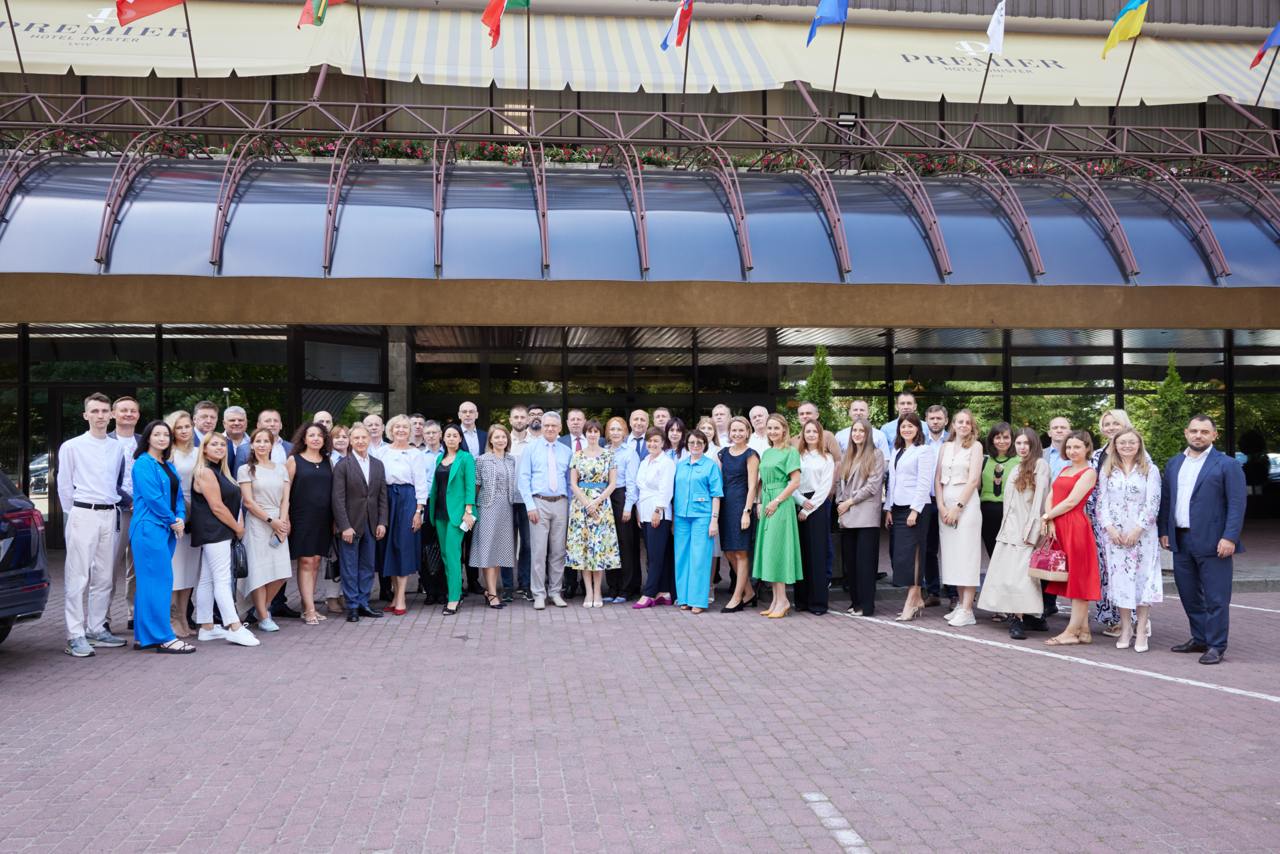
On 19 July, international conference “Communication of the Judiciary: One Voice as a Tool for Building Trust” was held with the support of EU Project Pravo-Justice. Representatives of the judiciary of Ukraine and Lithuania, NGOs, international technical assistance projects, and the media participated in the event.
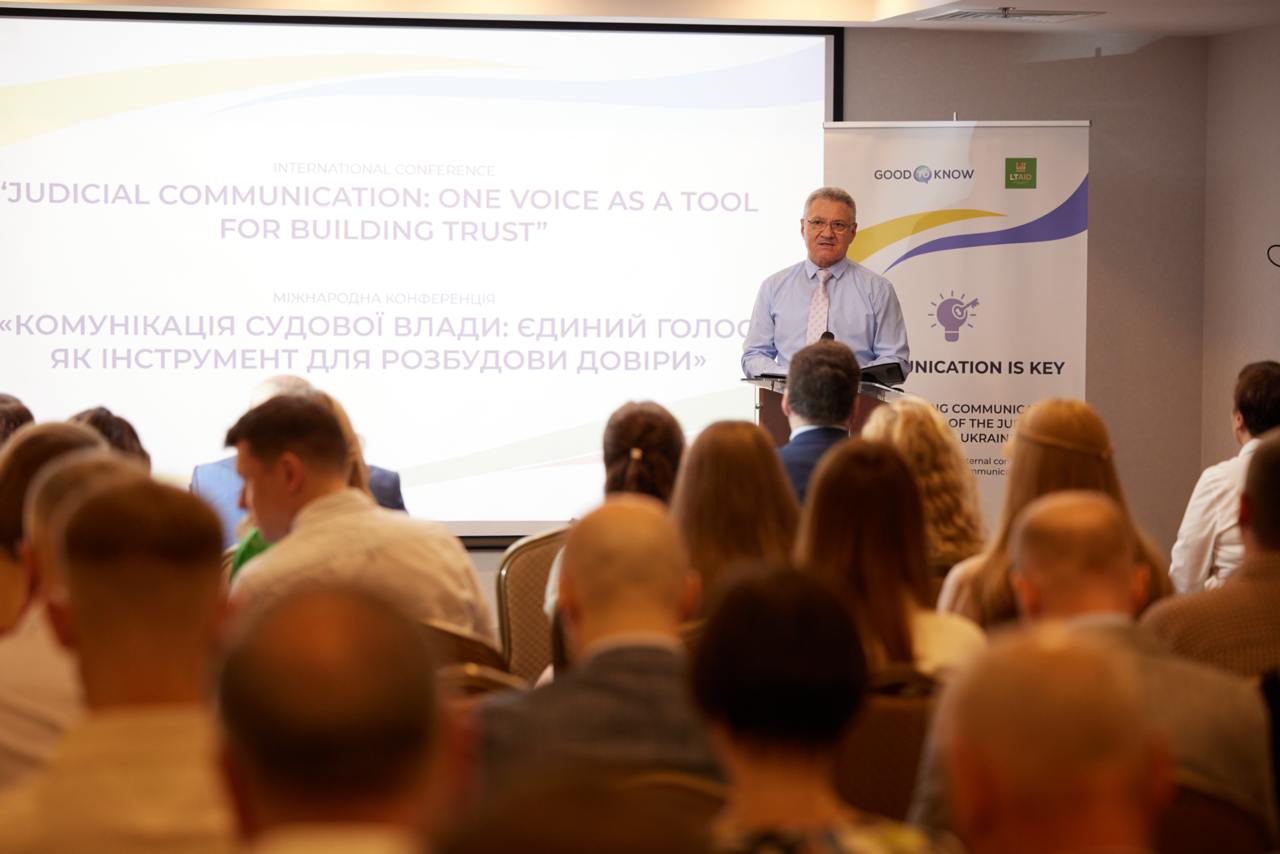
Hryhorii Usyk, Chair of the High Council of Justice, stated that the judiciary is consistently changing its approaches to enhance effective communication with the public. In his opinion, society should understand the judiciary’s tasks, problems and challenges.
“We are aware of them; society is not. People do not know why their case has been pending for several months. They don’t know about the shortage of judges and the logistical, financial, and HR challenges we face,” he emphasised.
In his opinion, it is essential to communicate with young people and university students to build trust in the judiciary.
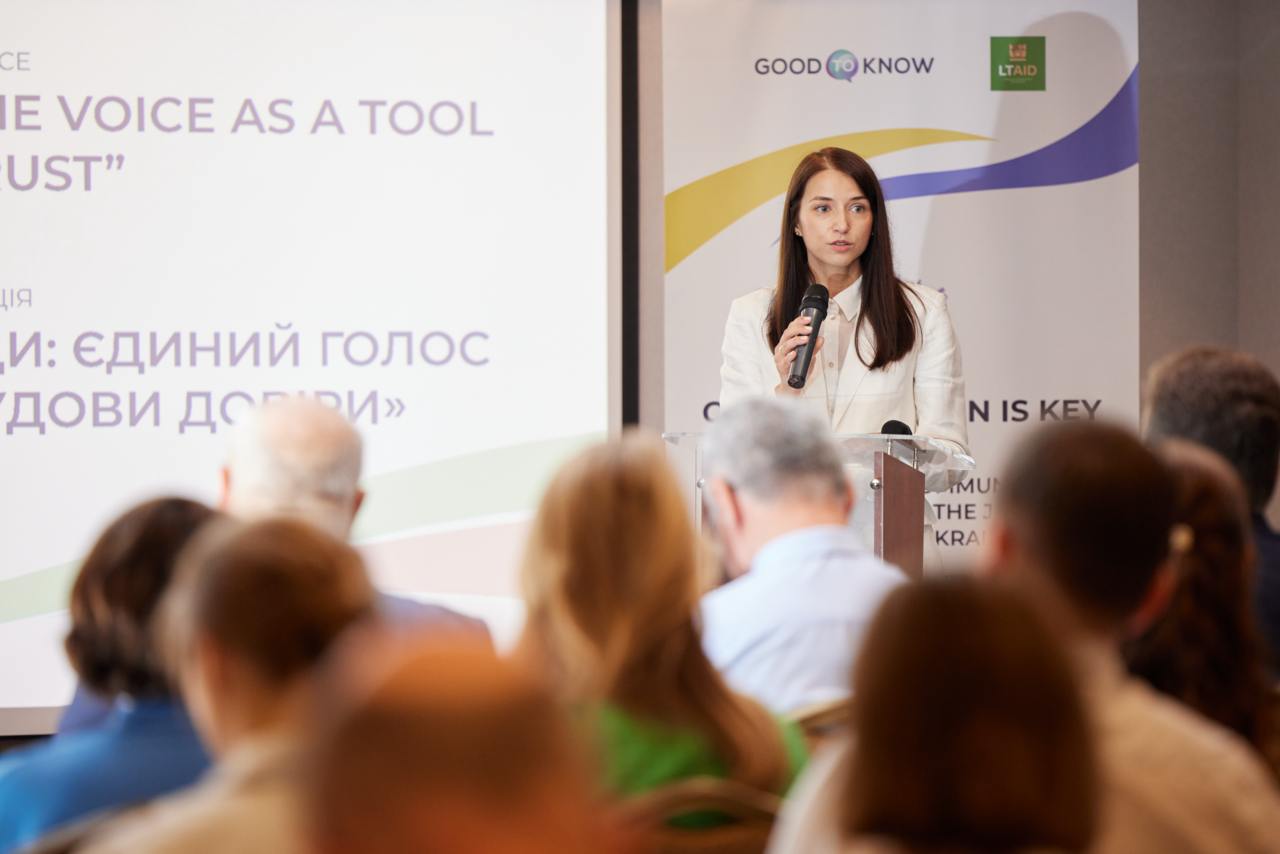
According to Oksana Tsymbrivska, Team Leader of EU Project Pravo-Justice, effective, high-quality and unified communication of the judiciary is a prerequisite for building public trust in judicial institutions.
“When the judiciary speaks with one voice, it not only provides information and explanations of its intentions and actions but also strengthens its credibility in the eyes of the public regarding the decisions it makes. Ultimately, this contributes to strengthening the rule of law, which is essential on Ukraine’s path to EU membership,” said the Team Leader of EU Project Pravo-Justice.
According to Oksana Tsymbrivska, EU Project Pravo-Justice has been making many efforts to improve judicial communication and access to justice for many years.
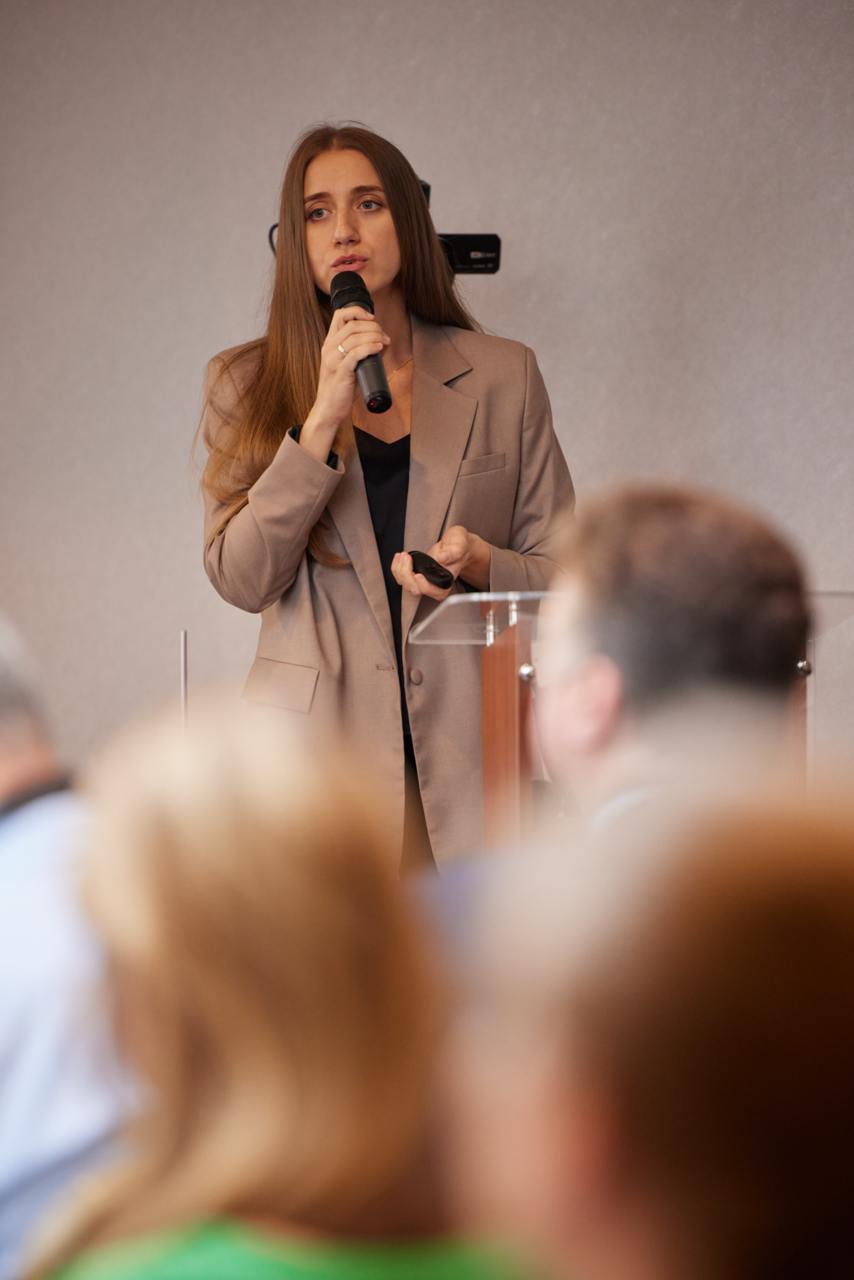
For her part, Svitlana Maistruk, Key National Expert on Court Modernisation of EU Project Pravo-Justice, elaborated on the initiatives implemented with the Project’s support, particularly the Model Court Initiative and the Good Practices Platform.
“Building a community of courts implementing model solutions and quality internal communication between courts is an important direction of the Model Court Initiative. For this purpose, the Project created the platform “Model Courts: A Platform for Good Practices”, which will combine the best practices of international projects and the best experience of Ukrainian courts in various aspects of court management,” she said.
Svitlana Maistruk said that the Project, together with the NGO ‘VAPS’, the platform administrator, plans to significantly update it and make it an even more convenient tool for internal communication and sharing best practices between courts.
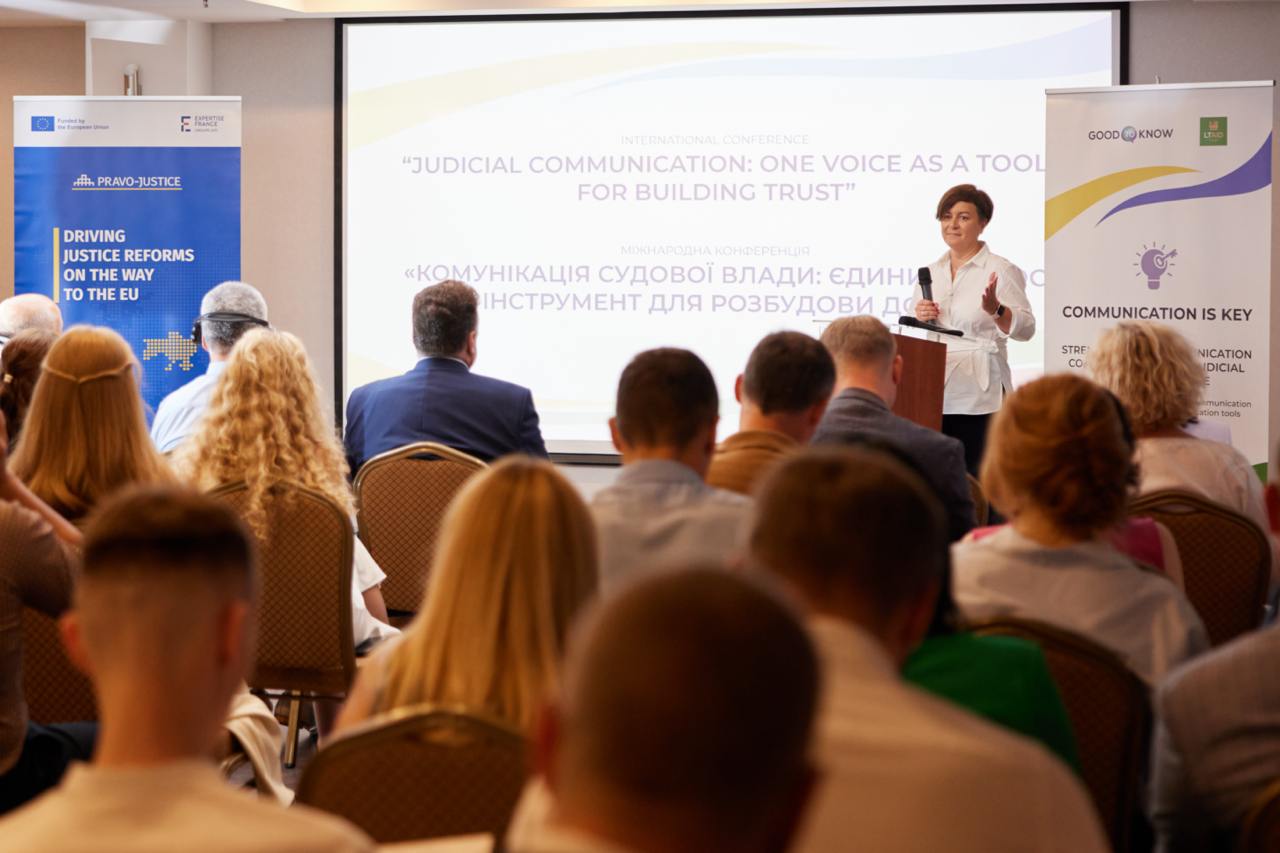
While presenting the findings of the survey on developing communications in the judiciary, Reda Moliene, co-founder of the Good to Know agency and a co-organiser of the event, noted that communications in Ukraine have evolved significantly.
“There is a general understanding that communication is an essential tool available to the judiciary to strengthen judicial independence and public trust in its decisions,” she said. Reda Moliene drew attention to the fact that, given the number of judicial governance bodies in Ukraine, it is difficult to ensure a unified approach to communications. Still, it is realistic, so it is necessary to devote efforts to achieving this goal.
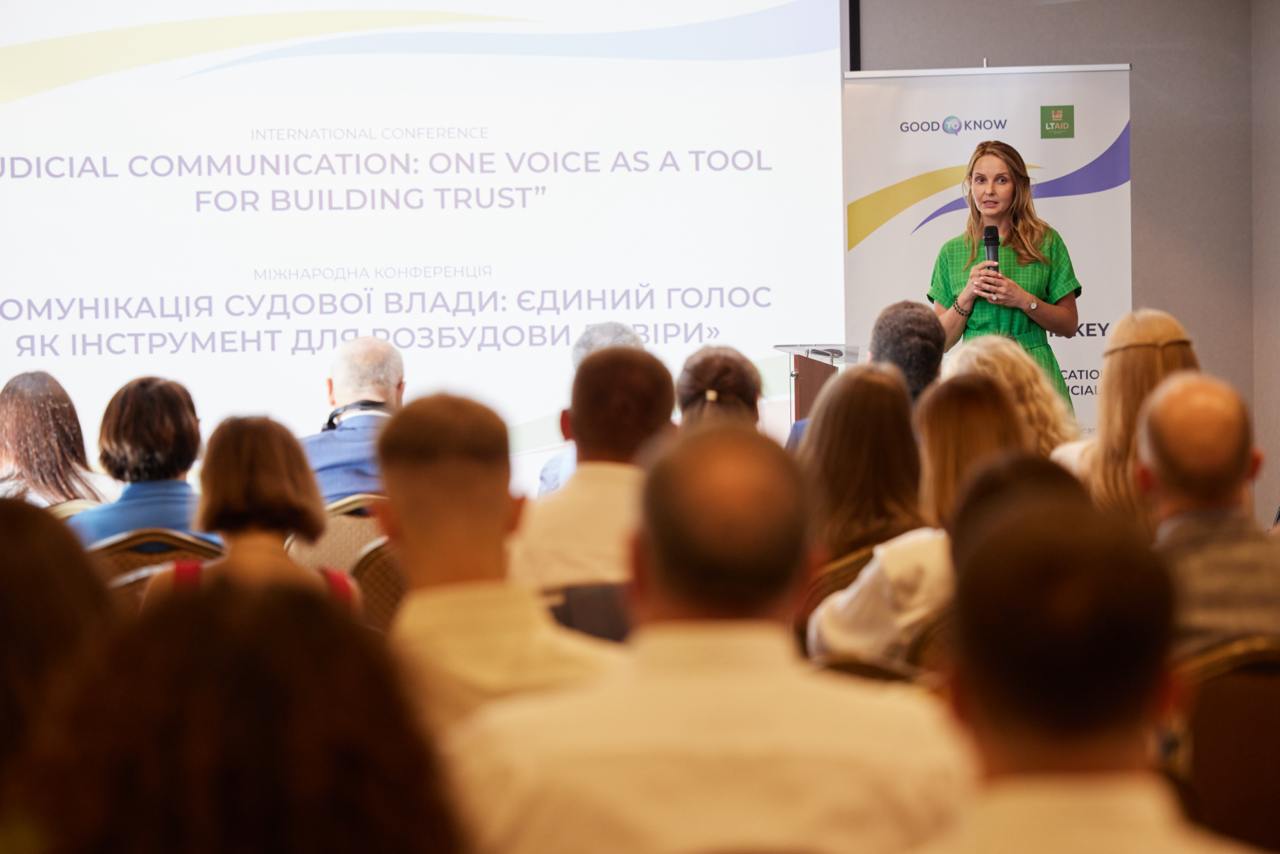
Liudmyla Volkova, Member of the High Qualification Commission of Judges of Ukraine, noted that the functioning of the courts and judicial authorities is now highly open and transparent. At the same time, communication of the judiciary should be even more effective.
“The next challenge we face regarding the communication of the judiciary is to build our work in such a way that we always aim to protect and respect the dignity of the individuals and their professional reputation,” she emphasised.
Volodymyr Kravchuk, judge of the Administrative Court of Cassation within the Supreme Court, said that it is necessary to set achievable goals, given the current context of our lives. According to him, communication policy should be flexible.
“We cannot ignore the things that have turned into significant trends and will be with us for quite some time,” he emphasised.
According to him, communication will only be effective if the trust in the judiciary is not lower than in other political institutions.
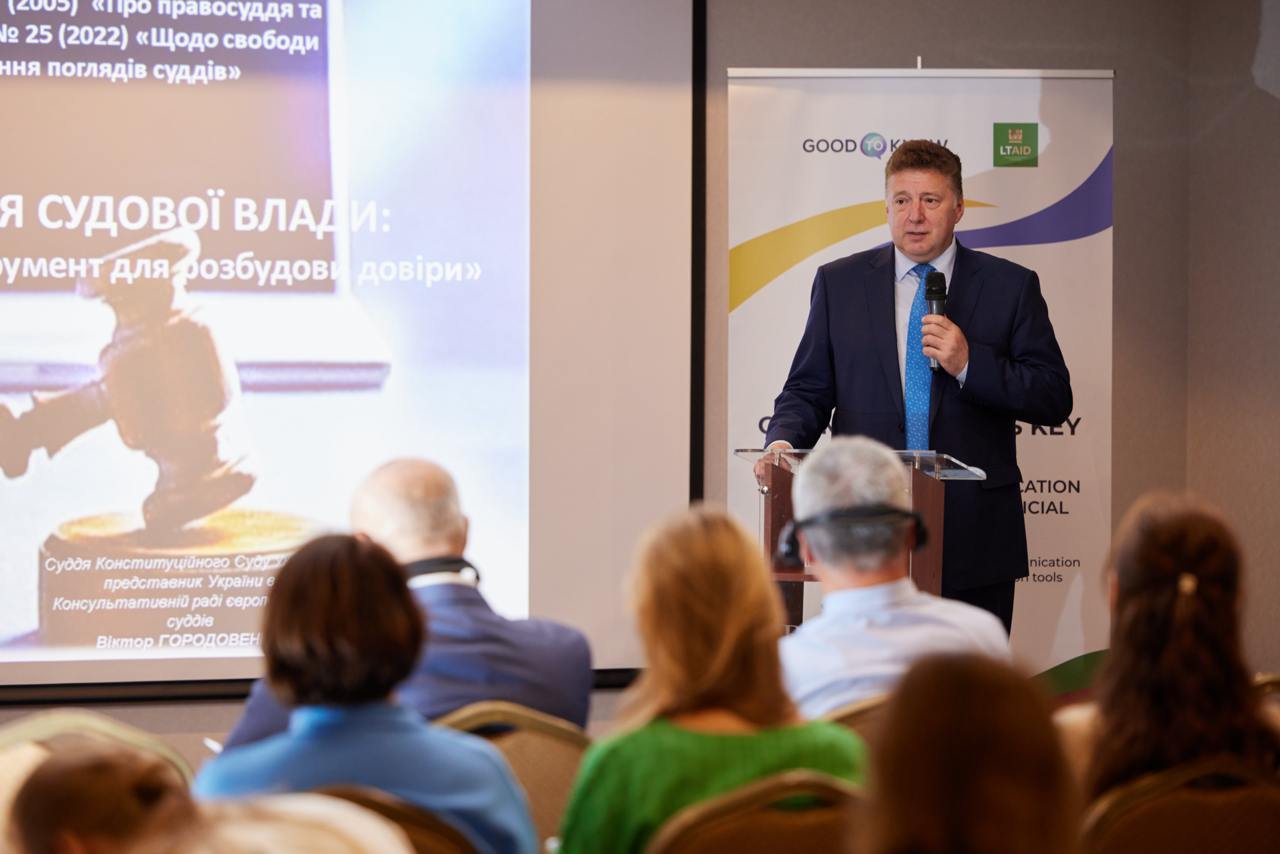
Viktor Horodovenko, justice of the Constitutional Court of Ukraine, said that judges should be more active in communicating with the public as there is a challenge of proper communication.
“The judges are responsible for the communication policy. The wisdom lies in coordination,” he emphasised.
According to him, judges should always remember that they are perceived according to what they say, so judicial discretion is crucial. At the same time, Viktor Horodovenko noted that judges have both an ethical and a legal obligation to defend the independence of the judiciary.
“This is the path that Ukraine is pursuing on its way to full membership in the EU,” he stressed.
Bohdan Monich, Chair of the Council of Judges of Ukraine, noted that there are certain problems associated with judicial communication because of the lack of a unified communication policy, which is a result of the large number of judicial governance and self-government bodies.
However, he noted that after 2014, the situation started to change for the better, particularly with the support of international partners. Bohdan Monich called for intensifying the support in developing judicial communication, especially after the HCJ and HQCJ became quorate again.